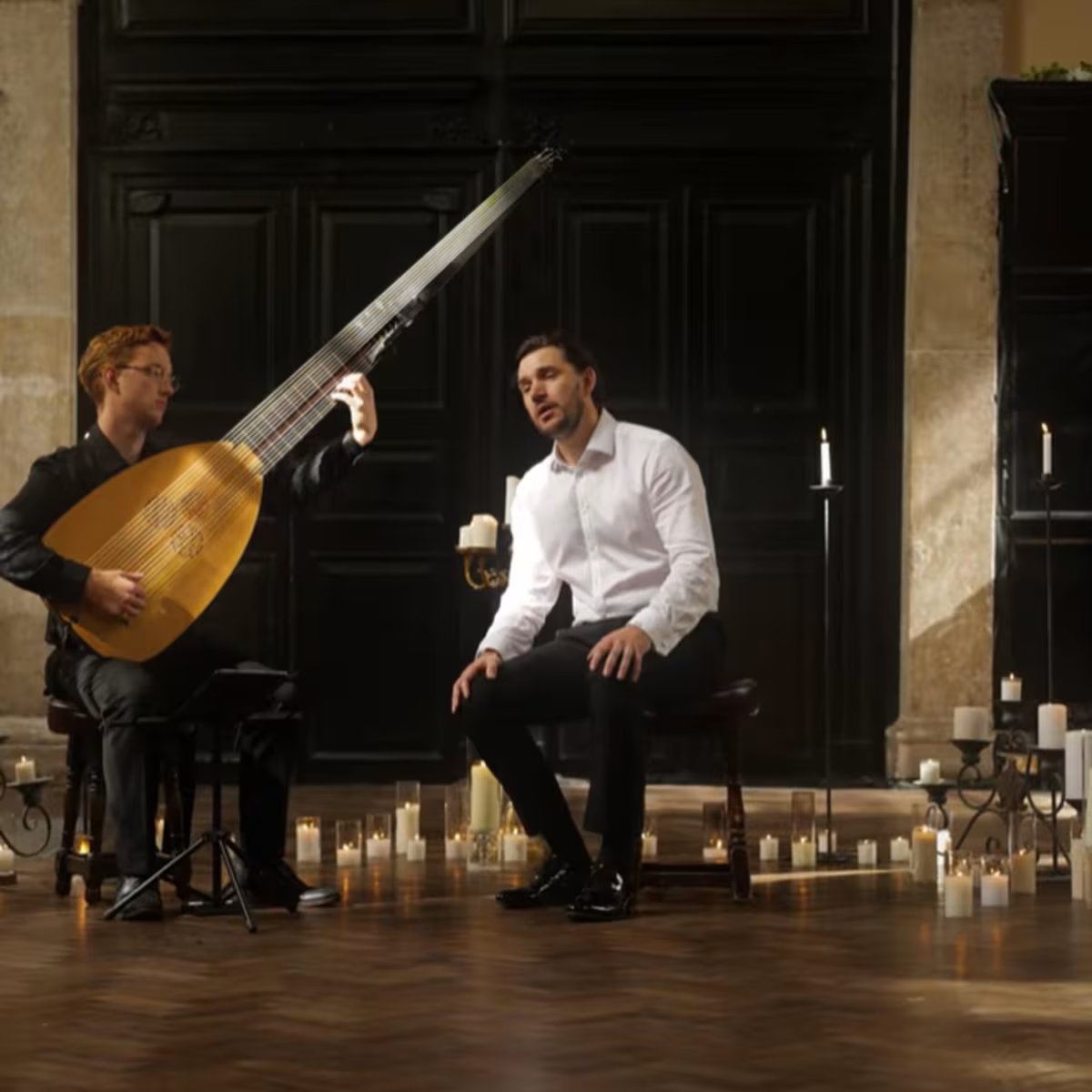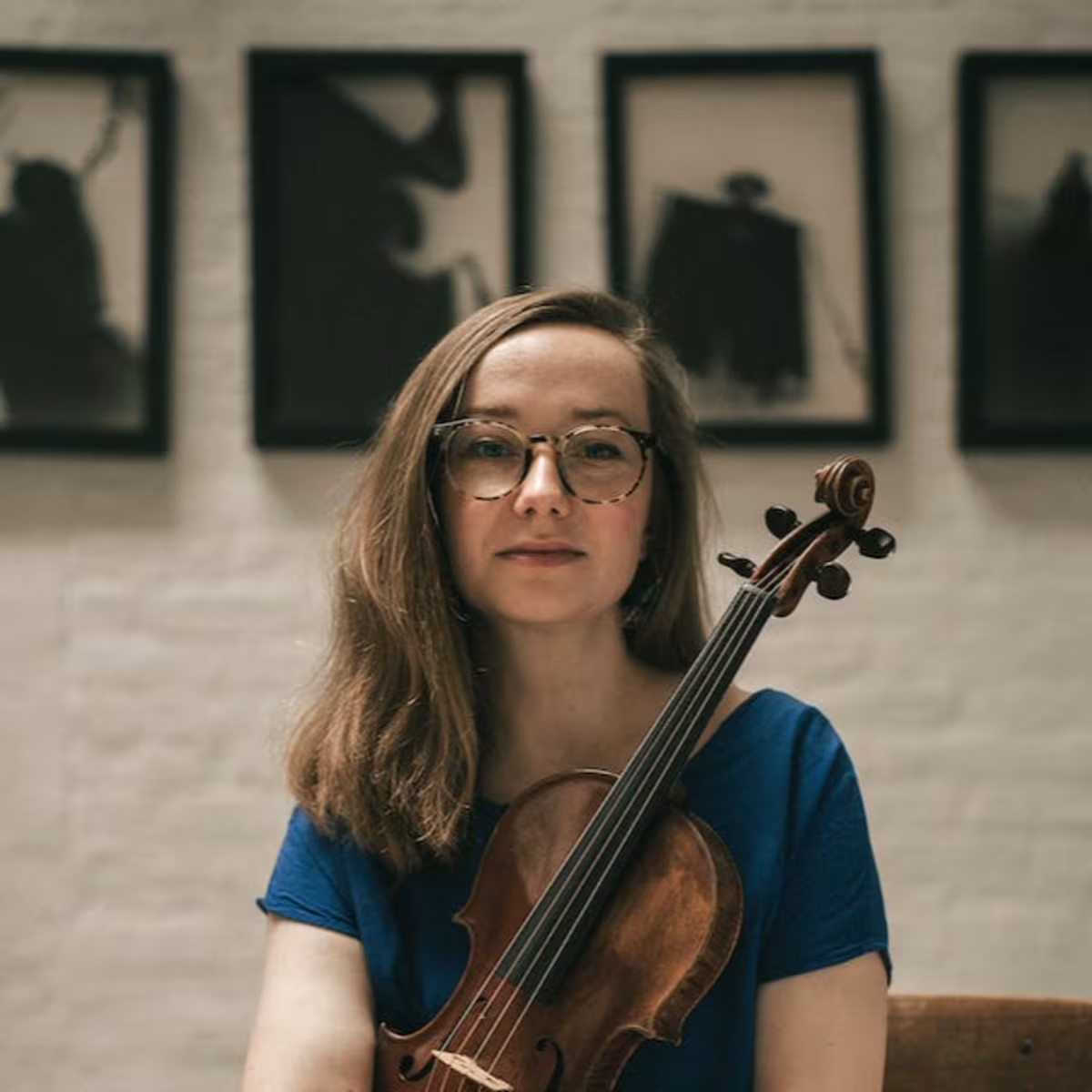Feature
Clare Norburn and The Telling
Ancient Music and Modern Drama
Share this

FIRST PUBLISHED 08 SEP 2024
There are so many ways to tell stories through music - from programmatic instrumental works, through song to full scale opera - that it is surprising to come across a new variant, or one that has largely been out of favour for a trio of centuries. Clare Norburn and the ensemble she co-founded, The Telling, have come up with a formula that is both ancient and very modern. She writes plays that are umbilically linked to the music but do not quite fit into any of the conventional categories of music theatre, or even theatre with music. In her work, actors act, singers sing, and sometimes players find themselves acting and even singing too. It is a big melange but all in the service of the drama. She describes it as "where music and theatre collide".
"What a lot of people do," she suggests, "is do the music and surround it with polite readings. This is not what we do. Our performance is first and foremost a play." Over the last fifteen years her genre has developed gradually. She began as a soprano and until 2017 was the co-founding artistic director (with Deborah Roberts) of the Brighton Early Music Festival. "The Telling came into being so we could demystify Early Music in a non-threatening way. This came to mean working in other forms, and that was how I started writing. I looked for a collaborator but couldn't find one who understood what I was talking about, so I took the plunge myself."

Some projects she calls concertplays, others plays with music, but the principle is the same; the story comes first and the music builds in and around it.
"I had good advice at the start: less is more, and the performance above all has to be dramatic. While I research projects carefully, I didn’t want to be entirely academic in approach. I don’t want to deliver a history lesson, but well-informed fiction. And what is interesting is that you can never find out from written sources what was in people's minds at the time. A dramatist, along with a stage director, can use fiction to imagine that. So I create a canvas with the words – and others (director, actors, and musicians) add to that and develop the ideas."
Clare has come to realise "that music unfolds in a different metre to drama, a ratio of 60/40 music/words, but the aim is to make it feel 50/50. Increasingly we have found we use music in multiple ways. There are bits where it provides a leitmotif, almost a trigger for memory (rather in the same way that smell does) and that underpins the drama."

The first subject she tackled as a concertplay was Unsung Heroine, set in 12th century Provence and imagining the life of the troubadour Countess Beatriz de Ria, whose A Chantar is the only song by a woman from that time for which both the poetry and the music have survived. Norburn also wrote an invented testimony from the best known female composer of that time, Hildegard of Bingen. Perhaps dramatically more complicated has been Into The Melting Pot, an examination of the situation for Jewish, Muslim and Christian women in 1492 in Spain, a moment when the totalitarian religious regime of the Catholic church in the recently united kingdoms of Castile and Aragon forced so many into exile when the Moorish Kingdom of Granada was annexed. It is a play that, using both the Sephardic and European musical traditions, is filled with all too many resonances of the plight of today's refugees from conflict and autocracy.
Politics is the thread too in I, Spie, a play based on the entanglements of intrigue and espionage which few significant artists at the Elizabethan court could avoid: in this case, John Dowland, looking at his role in thwarting an Italian plot against the Queen. Read more in this feature on I, Spie. In What The Dickens? Norburn jumps forward to Victorian times for a dark examination of Charles Dickens' relationships with women, set at his last Christmas Eve (in 1869), with Scrooge an uncomfortable companion. The incidental music has been written by the contemporary composer (and experienced West End music director) Stephen Edis. In this production everybody sings: actors and musicians.
The numbers of protagonists vary from project to project, though there are never less than four on stage (one actor and three musicians). Even if the musicians don't act in the sense of having lines to speak, they are required to interact and respond in character. Though there are no sets and only minimal costumes, "there are lots of props and," Clare says, "we make a point of having proper lighting."
All this staging for what is essentially a chamber group with a small acting troupe means that The Telling does not fit easily into the normal pattern of concert scheduling. "We can't do random one-off bookings. We couldn't get the actors for those. And the plays take a lot of rehearsal and production time, so we need at least four engagements in close succession." On the other hand, The Telling is not an opera company, so it can be flexible about which project, new or revived, is staged, where and when. When Clare and I spoke in July, she said, "it can be very intense too. We've just had two back-to-back tours, with 17 performances in five weeks." The thirteen-location tour of I, Spie was supported by a grant from Continuo Foundation.
For the future, Norburn is aiming to continue her strand of exploring strong but many-sided women by having a fresh look at the character of Carmen. And The Telling will continue to bring outstanding and accessible Early Music performances to areas with little provision in arts and culture.
Author: Simon Mundy
Share this
Keep reading

Bellot Ensemble | Monteverdi: ‘Oblivion soave’
Tenor Kieran White, joined by Daniel Murphy on theorbo, performs Arnalta’s aria, ‘Oblivion soave’ from Monteverdi's ‘L’incoronazione di Poppea’.

Carnival spirit at The Vache
Ashutosh Khandekar reviews Vache Baroque’s recent production of ‘Le carnaval de Venise’ by André Campra.

In Conversation: Agata Daraškaitė
Continuo Connect catches up with the first violinist of the Consone Quartet, Agata Daraškaitė to discuss her route into music and Consone's recent projects.




